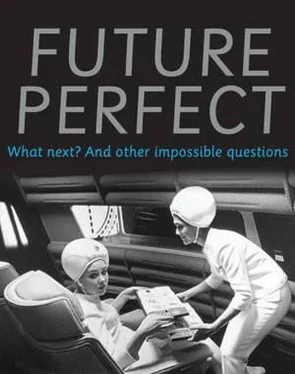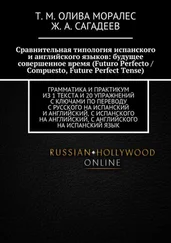As for what actually happens in schools and universities, it is plain that many students, like me 40 years back, are bored to jagging sobs. Science in class looks like a vast edifice of arcane information, clear to the Rain Man but tough going for everyone else. This is what students say. What they need is more practical problem solving. The discussion of ideas would also help. It takes many tutorials to free the minds and mouths of youngsters never before required to be articulate.
What of the future of science itself? Should it simply be allowed to find its own way untrammeled? Is there any point in putting up ‘flagships’, or trying to ‘pick winners’, or ‘waging wars’ on targets such as cancer or drought? Science costs lots of money, which is one reason it is in disfavour: politicians do not often want to spend millions, or even billions, on vast bits of boffinry that might, just might, bring results in twenty years’ time.
And those results are not predictable. Tom Barlow in Australian Miracle tackles the question of picking winners by citing President Nixon’s failed war on cancer. Billions of dollars and decades later, not much had changed. Compare this with the Australian Lawrence Bragg’s seemingly obscure investigation of the shape of molecules with his A-team in Cambridge -basic science on stilts. The result: the modern drugs industry, the human genome and the future of medicine, genetic engineering and- who knows?-the creation of new forms of life.
But one thing is clear: our future is dreadfully uncertain. Australia alone could face severe climate change, drought, the possible collapse of biodiversity together with soil depletion, water crises and much else. Try tackling those without a scientific infrastructure or a populace informed about what’s happening to them.
The blood chills.
* * * *
The Hunches of Nostradamus
2008Student recruitment in Science falls below that for Cake Decoration and Psychic Massage. Minister calls for national campaign.
2009CSIRO is restructured. Two new ‘flagships’ proposed: Universal Happiness and Biofools. Typist sacked.
2010Professor Melvin Schwartz (MIT) wins Nobel Prize. He is claimed as Australian because he once changed planes in Brisbane.
2011Barrier Reef dissolves. Minister promises it will recover.
2012CSIRO restructures.
2013ABC-TV Science outsourced to Beyond Productions. Beyond sold to Time Warner.
2014Science studies at Australian universities offered only as online courses-to save expenditure on apparatus.
2015Australian researcher at University of Melbourne confirms means for wiping out malaria parasite. Immediately offered posts in Geneva and Baltimore.
2016Minister identifies crisis in science student recruitment. Sends out press release from 2008 unaltered except for date change.
2017Cairns destroyed by cyclone. Toowoomba goes dry and is evacuated.
2018Remaining university Geology and Physics departments closed. Subjects offered as part of first-year Commerce.
2019Australian Museum becomes dinosaur theme park. Its scientific research ends.
2020CSIRO restructures. Science Minister renamed as ‘Minister for Restructuring’. Calls for…
3. The Future of God – God’s Only Excuse
God’s only excuse (He doesn’t exist).
– Jean-Paul Sartre
* * * *
One key to the future of the human race is, strange as it may seem, something that probably isn’t there. He was never there; but he was always the most important player in the pack both for winners and for losers. He is the ELEPHANT not in the room. He is the means by which his self-proclaimed representatives make us resigned to our fate, stoic about calamity, fatalistic in the extreme.
His is the name called as we invade, bomb, crusade, invoke the law, terrorise. He may, of course, be entirely innocent of all that is done in his cause. He may not be the one to blame at all. Particularly if he’s absent. But what is done on his behalf continues to be one of the most malign influences in every country on Earth.
If we do not get this right and understand what is happening, I fear for our future.
– Robyn Williams
* * * *
Dawkins treats Islam as just another deplorable religion, but there is a difference. The difference lies in the extent to which religious certitude lingers in the Islamic world and the harm it does. Richard Dawkins’s even-handedness is well-intentioned, but it is misplaced. I share his lack of respect for all religions, but in our times it is folly to disrespect them all equally.
– Professor Steven Weinberg, Nobel laureate in Physics
* * * *
God had a busy time in 2006. There were many books written about his nonexistence. One of them was mine.
There was one by philosopher Daniel Dennett-who actually looks like God on High in the clouds should look, all white beard and beatific smile suitably combined with a honeyed accent honed in Massachusetts and Oxford. Then biologist Louis Wolpert gave an engineering explanation for the invention of God, confessing as he did so that his son is a fundamentalist Christian and his chum is cosmic paranormalist Rupert Sheldrake. And then there was Richard Dawkins.
Dawkins is a friend of mine. I was his daughter’s babysitter. We have had meals at each other’s houses, love Oxford, have partners who appear on television, cherish the memory of our departed buddy Douglas Adams and are both angry about demagogues in cassocks creating mayhem. His book, The God Delusion , sold heaps and caused storms. The interesting thing is that his book, unlike my own small volume (Unintelligent Design) , was attacked from both the right and the left. It is interesting to consider why.
The God Delusion was written with the explicit intention of removing any belief the reader might have in a deity. ‘If this book works as I intend, religious readers who open it will be atheists when they put it down.’ When I read this in the opening chapter of Delusion , I was merely amused. At least he’s honest! Others reacted in quite a different way. They saw instead a foaming zealot, a snarling evangelical atheist riding the crimson chariot of the Antichrist. This is not the Richard Dawkins I know.
He is gently spoken, donnish, argumentative in that ever-so-Oxford way: ‘If you mean this… then that…’ or ‘I wouldn’t accept your premise-let’s unpack those assumptions’ and so on. All very pass the port and proper protocols. He would certainly not see himself as leading any kind of hostile movement raiding monasteries or burning basilicas. Or even as a member of a group who-with the possible exception of the Skeptics-are as unfascist a bunch of jovial iconoclasts as anyone could hope to meet (not even the shadow of a Robespierre among them). His ire with religion, which I share, is directed at the harm it does and at our polite pretense that things are otherwise.
Richard Dawkins is not remotely political (perhaps his greatest failing) but he is assumed to be so. The Selfish Gene , written 30 years ago, was taken to be a primer for rapacious come-what-may capitalism. It was nothing of the sort. When celebrating its 30th anniversary, he confessed that the title was given to him by the publishers and that it could equally easily have been called The Cooperative Gene . His own societal views are as unremarkably social-democrat as you would find at any Ivy-League campus sherry party; he is unusual only in the amount of confidence he has invested in science and the effortless elegance with which he is able to write about it.
Читать дальше












